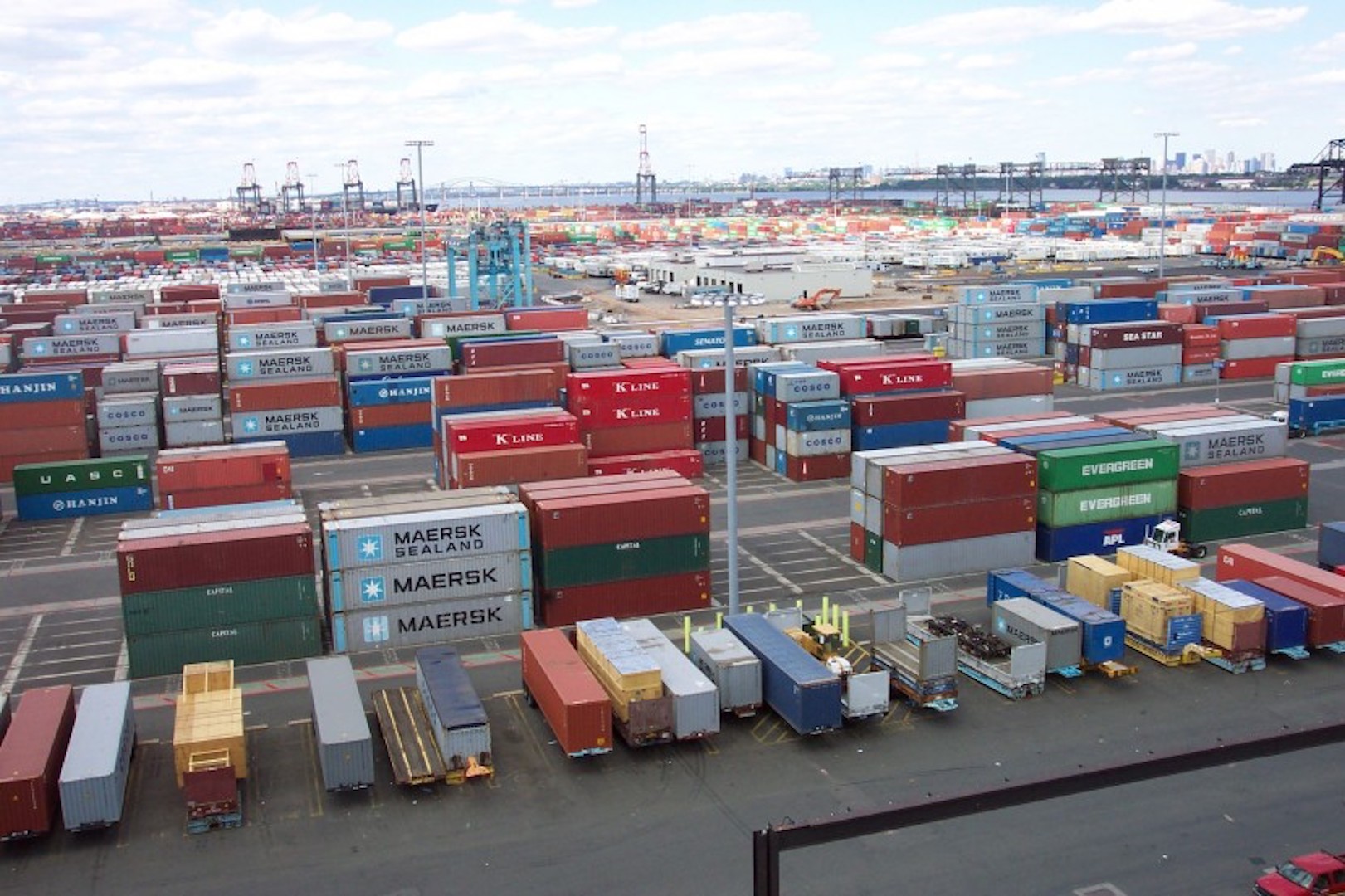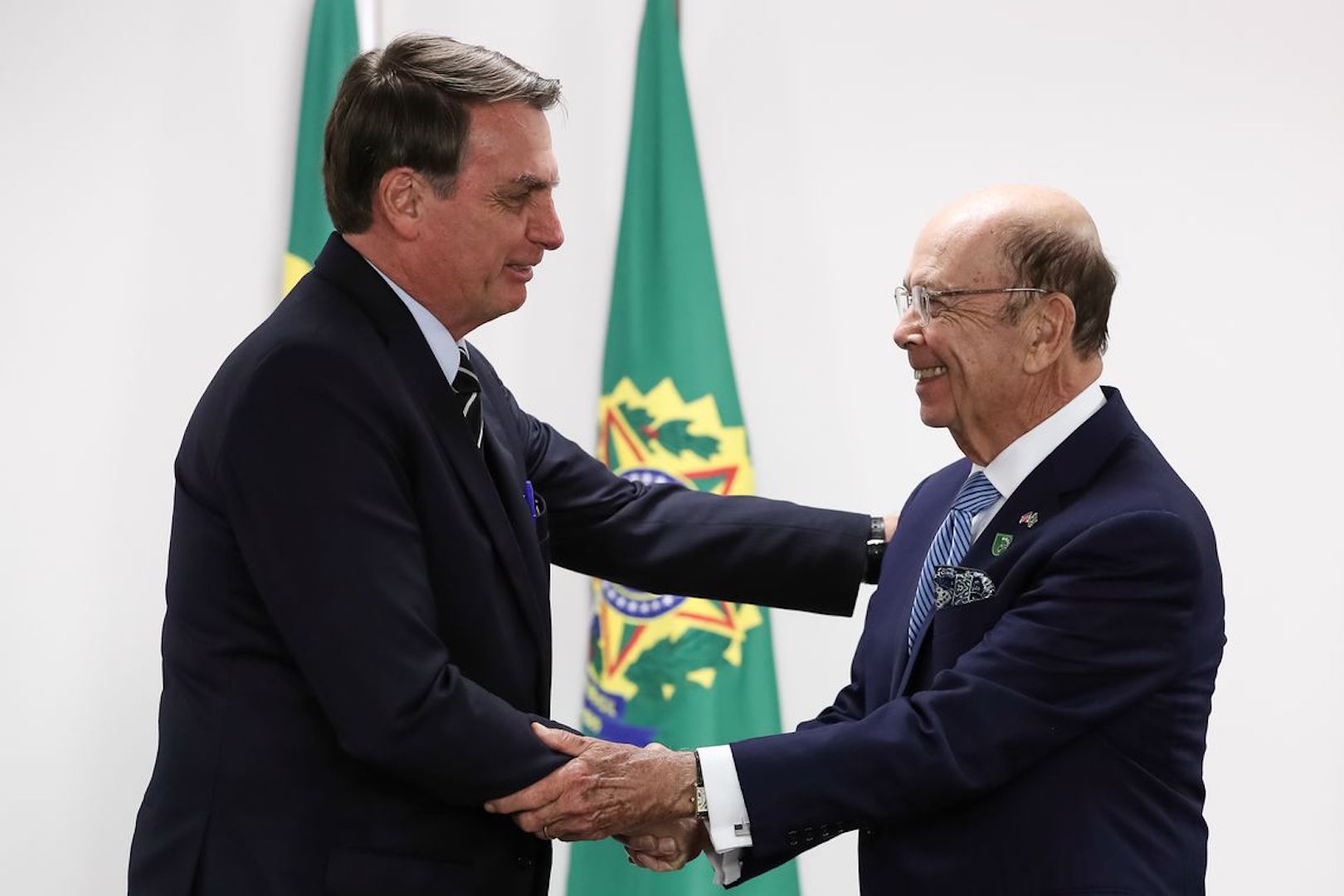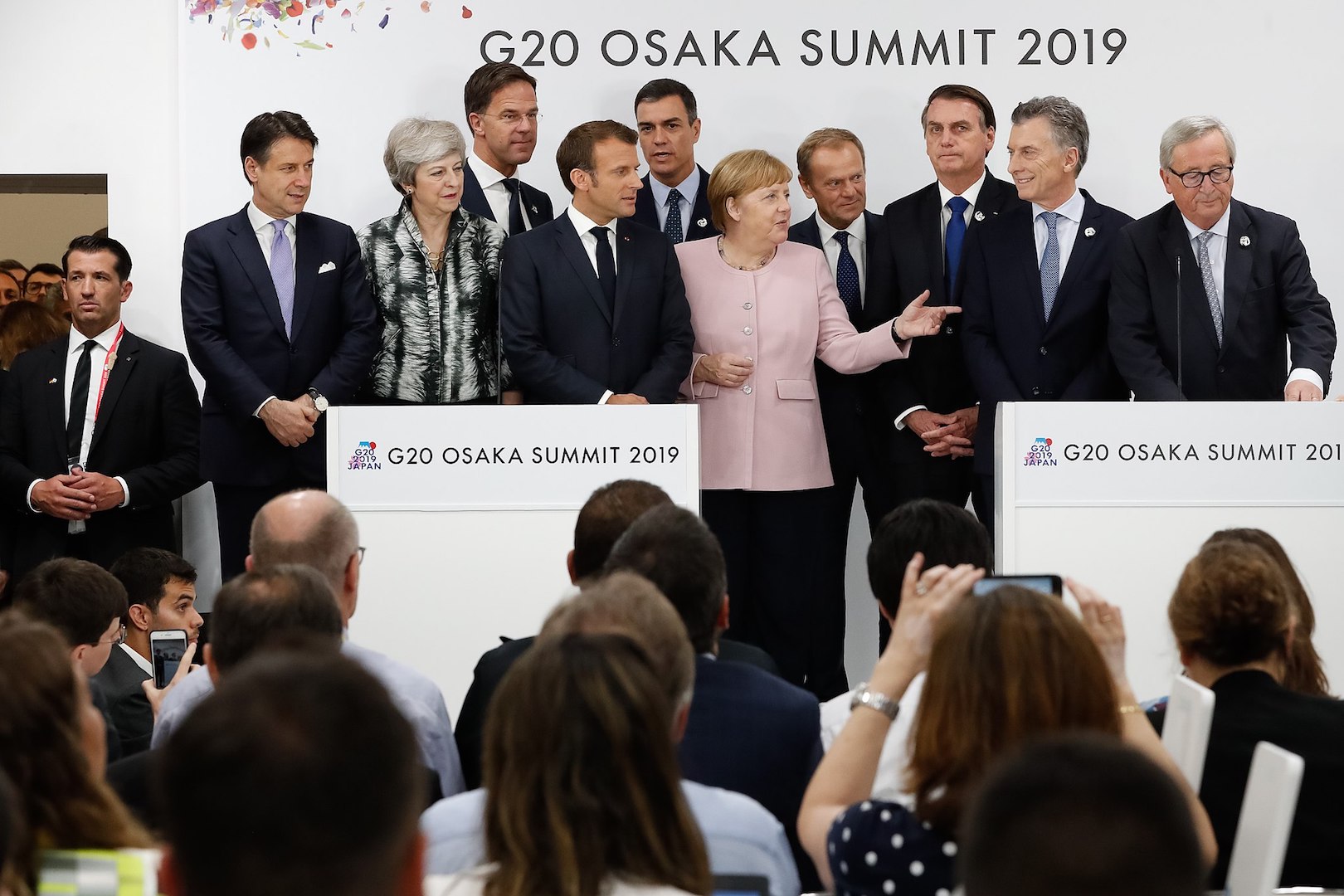SÃO PAULO, BRAZIL – Less than two months after announcing that a trade deal between Mercosur (Brazil, Argentina, Uruguay, and Paraguay) and the European Union had finally been reached, Brazilian officials announced last week that a U.S.-Brazil bilateral free-trade agreement might also be on the table.

The announcement immediately produced questions as to the impact of such an agreement on the Mercosur-EU deal and the South American trade bloc itself. Former Brazilian ambassador in Washington DC, Rubens Barbosa, however, says the latest negotiations between Brazil and the U.S. should not be seen as a setback to other international agreements now underway.
Barbosa told The Rio Times that negotiations between the U.S. and Brazil are likely to begin with non-tariff issues. According to the former ambassador, it is still too early to begin discussing a trade deal between the two countries.
“The treaty is a bilateral facilitation of trade between the two, no negotiations of tariffs have been mentioned,” he said. “The first few agreements will likely be to reduce the bureaucracy in already established trade between the countries,” he noted.
Since the 2018 presidential campaign, Brazil’s president Jair Bolsonaro has been signaling his desire to seek closer ties with the North American neighbor. During Bolsonaro’s official visit to the White House in March, he and U.S. president Donald Trump released a joint statement about their intention to “build a new partnership”.
In July, Brazil’s leader announced he was going to nominate his son, Eduardo Bolsonaro, as Brazil’s ambassador to the United States in Washington D.C. According to the president, the younger Bolsonaro would help consolidate the ties between the two countries.
And last week, Brazilian officials, including President Bolsonaro, received the visit of U.S. Secretary of Commerce, Wilbur Ross, first visit by a U.S. Secretary of Commerce since 2011.

“The following was decided: what was just a thought is now happening, now we are officially starting negotiations with the United States,” Brazilian Economy Minister, Paulo Guedes was quoted by Brazilian media after meeting with Ross.
In the words of the U.S. secretary, President Trump is “committed to a dynamic and strong commercial relationship with Brazil”.
Guedes noted that the goal of the Brazilian government is to close a strategic alliance with the U.S., “something that would go deeper than a trade deal.”
But despite the Brazilian government’s optimism with this initial meeting, former ambassador Barbosa believes that a trade accord between Brazil and the U.S. will take years, similar to what has occurred between Mercosur and the European Union.
Negotiations between Mercosur and the European Union, notes the former Brazilian diplomat, have been held for the past 20 years. And although earlier this year the two blocs reached an agreement, Barbosa says, specifics have not yet been discussed, and each of the individual countries will still need to have the pact pass through their legislative bodies.
As to a South American trade bloc in this latest negotiation, Barbosa says if talks between Brazil and the U.S. advance, agreements could be just between the two countries and not include the other Mercosur partners.
“Despite the 2016 resolution calling for “a single voice” among partners, it has happened before,” says Barbosa noting deals with Israel and the Andean Community. In these cases, the products were negotiated individually by each country.
A deal between Mercosur and the U.S., says Barbosa, still depends on many factors, of which the most important is the upcoming Argentinian presidential elections. “If (Mauricio) Macri wins re-election it will be easier to negotiate a bloc deal,” says Barbosa, “but if Fernandes wins the election, then there may be some difficulties.”

Among components which might dampen negotiations between the U.S. and Brazil, Commerce Secretary Ross cited the Mercosur-EU agreement. He pointed out that the United States has disagreements with the European community in important trade sectors.
During a speech given at the American Chamber (AmCham) in São Paulo, however, Ross cautioned Brazil to be careful that no “poison pills” be inserted into the Mercosur-EU agreement that could hinder future Brazil-U.S. accords. Many took the secretary’s words as a warning.
“More than a “them or us”, I see it as a warning that our agreement with the EU should not prevent a broader free trade agreement with the U.S.,” AmCham president Luiz Pretti told reporters.
Brazil is among the ten largest destinations for U.S. exports, registering US$29 billion in 2018. Last year Brazil was able to export over US$28.7 billion to the North American country.

